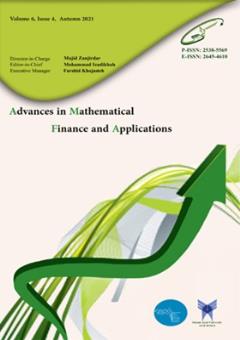Designing Prediction Model of Financial Restatements Using Neural-Genetic Simulation Algorithm
Subject Areas : Financial AccountingSasan Mehrani 1 * , Akbar Rahimi poor 2
1 - Department of Accounting, University of Tehran, Tehran, Iran
2 - Department of Accounting, Tehran University Alborz Campus, Tehran, Iran.
Keywords: Prediction, Financial Restatement , Beneish Model, Meta-Heuristic Models,
Abstract :
The increased number of restatements in recent years has increased the wor-ries about the quality of financial reporting among the beneficiary groups. The pres-ence of prior period adjustments and, subsequently, the financial restatements have a negative impact on the relatedness and reliability of the financial state-ments. The present study is aimed to present an appropriate criterion for predict-ing the financial restatements based on the Beneish model and its indices in companies admitted to the Tehran Stock & Exchange between 2009 and 2020. For this purpose, a total of 265 companies were selected considering the limitations. Also, the model estimation was per-formed using Beneish's primary model, a meta-heuristic neural network model, and optimization through genetic programming. As indicated by the obtained results based on the confusion matrix, the efficiency of the pro-posed model derived from the enhanced Beneish model with a genetic algo-rithm(S – 𝑆𝑐𝑜𝑟𝑒) had a total prediction accuracy of 73.21%, which was the highest prediction power compared to the Beneish Model .
[1] Abbott, L.J., Parker, S., and Peters, G.F., Audit Committee Characteristics and Restatements, Auditing: A Journal of Practice and Theory, 2004; 23(1): 69-87. Doi: 10.2308/aud.2004.23.1.69
[2] Accounting Standards Committee, Principles and Criteria of Accounting and Auditing, Accounting Standards: Standards 1 to 29, Journal 160 of Accounting Organization, 15th Edition, 2009
[3] Beneish, M. D, Lee, C, Press, E, Whaley, B, Zmijewski, M, Cisilino, P., The detection of earnings ma-nipulation, Financial Analysts Journal, 1999; 55(5):24-36.
[4] Carcello, J., Palmrose, Z., Auditor litigation and modified reporting on bankrupt clients, Journal of Accounting Research, 1994; 32:1-30. Doi: 10.2307/2491436
[5] Chenlung, Chin; Hsin-Yi, Chi., Reducing Restatements with Increased Industry Expertise, Contempo-rary Accounting Research, Toronto: 2009; 26(3): 4. Doi: 10.1506/car.26.3.4
[6] Coca, T. C., Marian, S., Veronica, G., Dan-Andrei, C., Fiscal and Accounting Fraud Risk Detection Using Beneish Model a Romanian Case Study, International Journal of Business and Society, 2021; 22(1): 296-312. Doi: 10.33736/ijbs.3176.2021
[7] Dechow, P. M., Ge, W., Larson, C. R., Sloan, R. G., Predicting material accounting misstatements: pre-dicting material accounting misstatements, Contemporary Accounting Research, 2011;28:17-82. Doi:10.1111/j.1911-3846.2010. 01041.x
[8] Dikmen, B., Küçükkocaoglu, G., The Detection of Earnings Manipulation: the three phase cutting plane algorithm using mathematical programming, Journal of Forecast, 2010;29(5): 442–466. Doi: 10.1002/for.1138
[9] Freed, N., Glover, F., A Linear Programming Approach to the Discriminate Problem, Decision Scienc-es, 1981; 12: 68-73. Doi: 10.1111/j.1540-5915.1982.tb00139.x
[10] Gertsen. F., Van Riel C., and Berens, G., Avoiding reputation damages in financial restatements, Long Range Planning, 2006; 39 (3), 429-456. Doi: 10.1016/j.lrp.2006.09.002
[11] Impink, J., Earnings manipulation and bankruptcy: WorldCom, Bachelor Paper, University of Am-sterdam, 2010
[12] Khajavi, S., Ghadirian Arani, M., Investigating Effect of Profit Quality on Financial Restatements, Accounting Advancements, 2015; 7(2):54-89. Doi: 10.22099/JAA.2016.3546
[13] khaksari, I., shoorvarzi M, mehr azin A, masih abadi A., Developing a local model to detect the uneth-ical behavior of managers in financial reporting. Mieaoi; 2021;10(36) :325-351.
[14] Kheirollahi, F., Eyvan, F., Mohebbi, E., Consequences of Failure of Financial Reporting for Non-Obliged Managers, Experimental Studies on Financial Accounting, 2017; 4(54): 109-132. Doi: 10.1111/j.1475-679x.2005.00172.x
[15] Lehenchuk, S., Mostenska, T., Tarasiuk, H., Polishchuk, I., and Gorodysky, M., Financial Statement Fraud Detection of Ukrainian Corporations on the Basis of Beneish Model, International Conference on Business and Technology2020; 1341-1356. Doi: 10.1063/5.0079051
[16] Lev, B., Corporate earnings: Facts and fiction, Journal of Economic Perspectives, 2003; 17 (2): 27-50.
Doi: 10.1257/089533003765888412
[17] Linn, Erik; Diehl, Kori, Financial Restatements Causes, Consequences, and Corrections, Strategic Finance, Accounting and Tax Periodicals, 2005; 87(3): 34.
[18] MacCarthy, J., Using Altman Z-score and Beneish M-score models to detect financial fraud and cor-porate failure: a case study of Enron corporation, International Journal of Finance and Accounting, 2017; 6:159-166. Doi: 10.5923/j.ijfa.20170606.01
[19] Namazi, M., Investigating Application of Agency Theory in Management Accounting, Journal of Social Sciences and Humanities of Shiraz University, 2006; 22(43):147-164.
[20] Nevisi, F., Allivar, A., Nazari, R., Changes in Accounting and Correction of Mistakes, Journal 65 of Accounting Organization, 8th Edition, 2005
[21] Nikbakht, M., Rafiei, A., Compiling the Model of Factors Affecting Financial Restatements in Iran, Knowledge of Accounting, 2012; 3 (9):167-194.
[22] Oanh, Nguyễn Thị Kim, Nguyen Van Dinh, Nguyen Cam VAN, Associations of Board Size, Audit Reputation, and Debt with Financial Restatement: Evidence in Vietnam, Proceedings of the International Conference on Emerging Challenges: Business Transformation and Circular Economy, ICECH ,2021. Doi: 10.2991/aebmr.k.211119.012
[23] Palmrose, Z. V, Richardson, V. J, Scholz, S., Determinants of market reactions to restatement an-nouncements, Journal of Accounting and Economics, 2008; 37(1): 59-89. Doi: 10.1016/j.jacceco.2003.06.003
[24] Papik, Mário, Papikova, Lenka, Detection Models for Unintentional Financial Restatements, Journal of Business Economics and Management, 2020; (21): 64-86. Doi: 10.3846/jbem.2019.10179
[25] Radestani, G., Tatlli, R., Prediction of Profit Manipulation: Developing a Model, Accounting and Au-diting Analyses, 2016; 23(1):73-96. Doi: 10.22059/ACCTGREV.2016.57021
[26] Rezaee, Z., Causes, consequences and deterrence of financial statement fraud, Critical Perspectives on Accounting, 2005;16(3): 277-298. Doi: 10.1016/S1045-2354(03)00072-8
[27] Saei, Mo., Bagherpoor Valashani, M., Mousavi Bayegi, S., Investigating Frequency and Importance of Financial Restatements, Financial Accounting Studies, 2013; 5(1): 67-86.
[28] Svabova, L., Kramarova, K., Chutka, J., Strakova, L., Detecting earnings manipulation and fraudulent financial reporting in Slovakia, Oeconomia Copernicana, 2020; 11(3): 485-508. Doi: 10.24136/oc.2020.020
[29] Unegbu, A. O., Advances in modeling for falsified financial statements, International Journal of Fi-nance and Accounting, 2013; 2 :37-54. Doi: 10.5923/j.ijfa.20130201.06
[30] Valaskova, K., Fedorko, R., Beneish M-score: A measure of raudulent financial transactions in global environment? SHS Web of Conferences ,92: 02064, EDP Sciences 2021.

